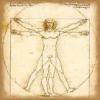Groundbreakng Same Sex Survey for Same Sex Mormons
-
Recently Browsing 0 members
- No registered users viewing this page.
-
Similar Content
-
- 83 replies
- 5,756 views
-
Mormon and Gay: Church Teachings on Diversity 1 2
By Robert F. Smith,
- lds church
- homosexuality
- (and 2 more)
- 25 replies
- 2,382 views
-
- 208 replies
- 9,842 views
-
- 221 replies
- 11,561 views
-
The November policy change was reaffirmed as revelation in the Oct. Ensign 1 2 3 4 17
By phaedrus ut,
- 423 replies
- 20,319 views
-





Recommended Posts